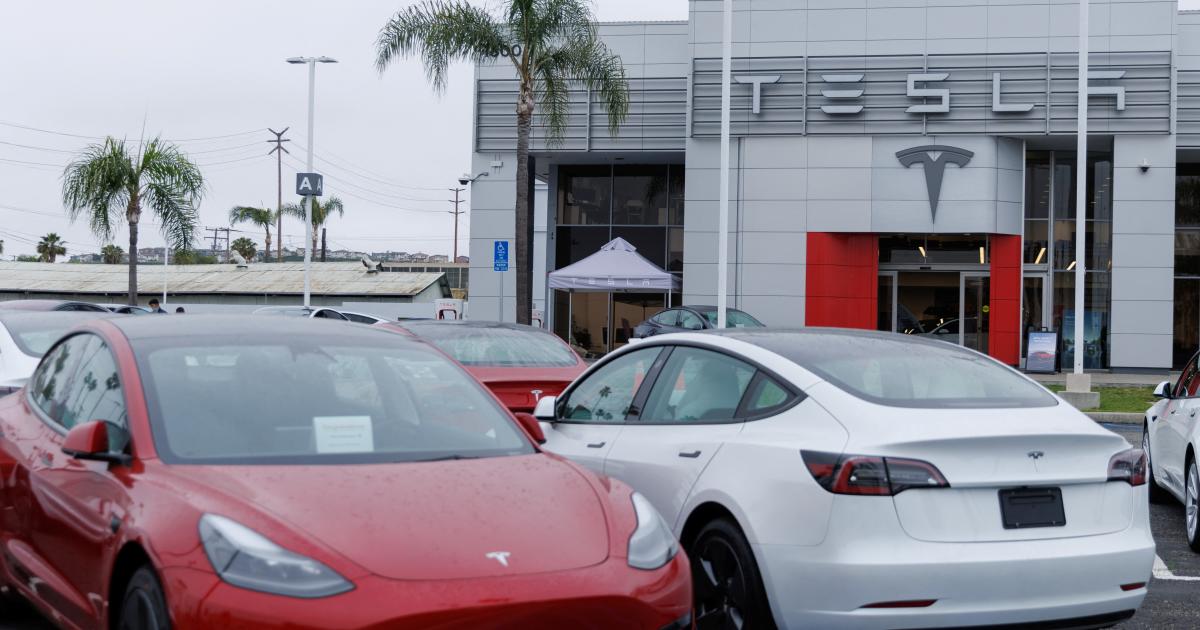Tesla sued for false advertising after allegedly exaggerating EV ranges / The proposed class action accuses Tesla of fraud::A lawsuit accuses Tesla of false advertising for allegedly exaggerating EV ranges…
Tesla is synonymous with false advertesing and hype.
Good. Fuck Elmo.
The latest podcast season of Land of the giants is about Tesla, I‘m finding that quite interesting so far: first episode
Going to have to go with this one again.
“I sued Tesla, because I bought their car, I drove it and then I got stuck!”
deleted by creator
Well that’s fine. The good thing about those lyrics is you can just swap tesla for another company.
This is such a nothingburger.
class action
It’s literally 3 people in California
The trio claims their cars fell well short of their estimated ranges
Teslas are tested to the EPA test cycles, same as every other car in the US. They’ve been audited multiple times, and always passed.
The lawsuit follows a Reuters report that Tesla began modifying EV ranges about a decade ago.
Ah yes, an unverified report from a single unnamed source with 10-year-old knowledge.
Its cars would supposedly show inflated figures when fully charged, and would only start showing accurate numbers under a 50 percent charge. … It’s not certain that Tesla still uses these purported exaggerations.
If the “investigative” reporter wanted to test this, they could literally just go and find a new Tesla and see what its fully-charged range says. Trivially simple. But it would show the EPA range which goes against their story, so they don’t mention it.
To head off complaints, the automaker is said to have created a “Diversion Team” that would persuade users to drop range-related support calls.
In tech (and Tesla is a tech company) it’s called L1 support. Try calling your ISP and getting them to send out a technician, and they’re going to make you do a bunch of other tests on your end first. It’s annoying, but it turns out most complaints can be solved over the phone (because most complaints come from people who are terrible with technology).
Predictable Musk apologist.
Tesla is the only company with such incorrect range estimates. There is now tons of evidence, such as internal communication, indicating that this was intentional lying. If they win, the payout will be to all affected, not just to those filing suit.
He’s right about the range calculation on the sticker though. It’s governed through SAE J1634, IIRC. The difference between EU and US is which test cycle they use, IIRC.
I’m not familiar with older J1634 so I’m not sure if it’s significantly different or not.
The other thing is, how is the end of test criterion determined for Tesla? The way the document is written leaves manufacturers with some wiggle room (IIRC). It could really be that the SAE paper should be revised to run with everything on.
The real time driving range is pretty damning though. I’m not sure if there’s any RDE testing required for BEV in the states. It would be really interesting to see if this sparks that.
It’s not right though. Tesla was uniquely inaccurate. This Ars Technica article I read a few days ago goes into more detail. No other manufacturer has such inaccurate range estimates. In fact, most exceed their estimates.
Certain manufacturers may have standard operating practices of keeping the AC running, or how close to the trace line they drive — there is a tolerance for some error.
If Tesla STICKER ranges are unrealistic, they are likely abusing the general EPA phrasing of “using good engineering judgment” that usually accompanies emissions legislation to push their ranges higher.
The other part of the ars technica concerns the actual estimates when driving the car. Above 50%, they are not providing accurate estimates.
Given recent events at the company formerly known as Twitter, though, do you really expect different from Musk?
Yes exactly. One could do mental gymnastics to try to defend this, but the balance of evidence and past decisions by Musk makes it obvious that this is far from innocent. This is theft by misrepresentation.
Can you point out where anyone mentioned his name before you brought it into the discussion?
One of my favorite things about Lemmy is that right-wing apologists and bootlickers get called out pretty consistently.
Let’s also not forget that this issue applied to ICE vehicles as well for decades. The EPA city/highway MPG ratings were always way higher on paper than in practice until they reformulated their testing several years back to give more accurate numbers.
Do you have a source for the reformulation? I’m newer in industry and don’t remember a reformulation. I’d be interested to know more
EPA periodically updates its methodology to account for changes in vehicle technologies, driver behavior, and/or driving conditions. The 2008 changes were broad revisions to the entire methodology that lowered the fuel economy estimates for all vehicles. The updates for 2017 will reduce some fuel economy estimates by 1 mile per gallon (MPG) and a small number by 2 MPG.






